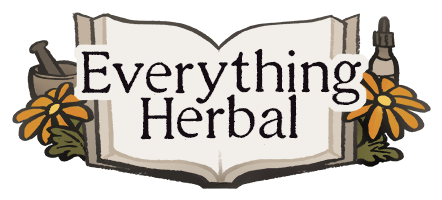Talking About: Adaptogens
Adaptogens
What Are Adaptogens?
Often times, we have to just listen very closely to a client’s story and they will actually tell us the answer themselves. The same concept applies to the term “adaptogen” – listen closely “adaptogen” – “to adapt” – “adapting”… Looking at it from a broad view, this is what this group of herbs does. Adaptogens help us adapt to both environmental and psychological stresses.
It is said that 75% – 90% of all doctor visits in North America may have a stress-related component. Clearly, our bodies are sending us signals – these signals can include loss of interest, poor memory or feelings of worry and fear. Symptoms can also include (but are obviously not limited to) manifestations which we may not even relate to stress; like feelings of tension, fatigue or digestive issues.
If our body is unable to naturally recover from stress, there are two essential ways to support it in its ability to cope and recover. The first one is to address the initial stressors and find ways to limit the root cause. The second is to introduce the “super-heroes” of the herbal world – Adaptogens.
Any reputable herbalist will support clients in both ways. They will help find a herb that suits the individuals needs best, usually within a personalized formula, but will also share effective techniques to help cope with stress and exhaustions.
In summary, adaptogens:
- Increase resilience
- Increase physical performance
- Increase coordination, cognitive performance, memory and concentration
- Improve mental and physical activity and stamina
- Have a tonifying and immunomodulating effect
Getting a Hand on the Root Cause
Yes, adaptogens are amazing. They are the number one group of herbs to help us become more resilient to stressful situations and support our organism when suffering from stress related fatigue and other symptoms. However, when working with adaptogens, we have to keep in mind that they can certainly help us “adapt”, but also, adaptogens will only effectively work long term if we also address the root cause that has brought one to this state of physical and emotional exhaustion. Biological stressors, chemical stressors, consumable stressors, environmental stressors, psychological, physical, as well as spiritual stressors all have to be addressed. Trying to fix symptoms instead of addressing the root problem can be dangerous.
Apoptogenic Herbs
If you think adaptogens are what’s needed in your life, be sure to find the right one for YOU. Adaptogen isn’t always adaptogen. For example, if one lit their candle on both ends and as a result crash and are burned out, a relaxing adaptogen like Ashwagandha might not be the first choice. We might want to work with a more stimulating herb like Rhodiola. But even then, if the client’s constitution tends to be rather dry, Rhodiola might, in the long run, irritate even more. Therefore, in order to receive the best long lasting results, it is always advised to contact a professional herbalist to help find which adaptogen might work best.
Examples of Some Apoptogenic Herbs
Rhodiola rosea (Rodiola) – Stimulating
Can help with brain fog, increase concentration, memory as well as mental capacity. Has also been recognized to help with depression, particularly the “winter blues” (SAD).
Eleutherococcus senticosus (Eleuthero, Siberian Ginseng) – Stimulating
Eleuthero is helpful for those who can’t get out of bed, even after a full night of sleep. For those dragging through the day, foggy brain… Eleuthero supports a depleted immune system by promoting natural detoxification processes in the liver.
Withania somnifera (Ashwagandha) – Strengthening without stimulating, calming
Particularly helpful for individuals who seem depleted and “worn out”. Has been used to heighten intellectual capabilities and longevity, for those with insomnia, wired/cloudy thinking and fatigue. Ashwagandha has improved long and short-term memory in people with mild cognitive impairments and has successfully been used those with OCD and ADHD.
Schisandra chinensis (Schisandra) – calming
Schisandra creates a calm feeling while increasing focus and gently boosting physical energy levels. It has hepatoprotective properties, meaning that it is liver protecting and blood purifying. Schizandra is thought to enhance the endocrine system and nonspecific immune system function, which is the one most affected by stress.
Ocimum sanctum (Tulsi/ Holy basil) – relaxing
This calming and relaxing adaptogen has been successfully used to help manage stress, poor memory, anxiety and be of support when one feels irritable. Tulsi clears the Aura, gives the power of awareness and harmonizes. Tulsi may also be beneficial in cognitive disorders such as Alzheimer’s disease and dementia.
I hope this post gave you a little insight on adaptogenic herbs and how they can interact with our body. This topic is covered much more in depth in the herbal course, which is currently developed and coming soon by our group of wonderful herbalists.
Resources:
Besides my own words and oral teachings from many wonderful herbalists, this write up features’ information from the following resources:
Ursel Buehring Praxis- Lehrbuch Heilpflanzenkunde – Grundlagen – Anwendung – Therapie. 4 ueberarbeitete Auflage. Karl F. Haug Verlag in MVS Medizinverlage Stuttgart GmbH & Co. KG’ 70469 Stuttgart, Germany. 2014. (Published in German language)
Jim McDonald – Foundational Herbcraft – www.herbcradft.org – collected writings from www.PlantHealkerMagazine.com.
Abrah Arneson – The Herbal Apprentice: Plant Medicine and the Human Being – Green Heart Press. 2014.
Paula Grainger – Adaptogens, Harness the power of superherbs to reduce stress & restore calm – Octopus Publishing Group Ltd. 2018
Adriana Ayales – ADAPTOGENS, Herbs for Longevity and Everyday Wellness – Sterling Publishing Co., Inc., New York. 2019
https://www.webmd.com/balance/stress-management/stress-and-the-body

